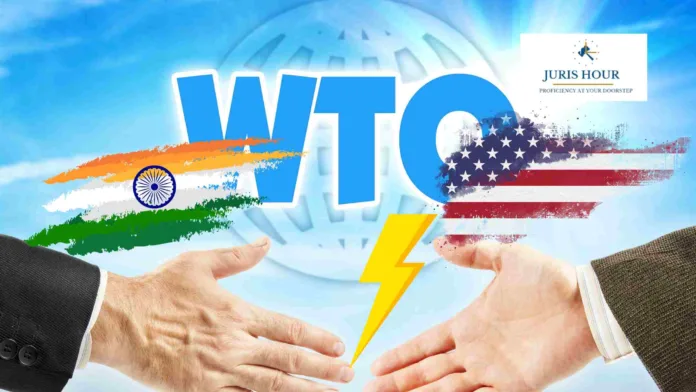At the World Trade Organization (WTO), the United States has formally objected to India’s proposal to impose retaliatory tariffs on 29 American products, claiming that India lacks legal justification for such actions.
Reasons for Tariff Conflict
The United States imposed 25% and 10% tariffs on steel and aluminum imports under Section 232 of its Trade Expansion Act, citing national security, in response to India’s proposed duties. Indian exports worth about $7.6 billion have been impacted by these duties. India responded by informing the WTO that it plans to impose additional duties and suspend some concessions on a list of U.S. goods, such as steel products, apples, and almonds.
US: India’s actions lack foundation under the WTO
In a recent filing with the World Trade Organization, the United States dismissed India’s arguments, claiming that its tariffs are national security actions rather than safeguard measures therefore outside the purview of WTO revenge rules. The U.S. made it clear that it would not negotiate India’s suggested actions under the WTO Safeguards Agreement.
Impact on Bilateral Trade Negotiations
This trading conflict coincides with a crucial time as India and the U.S. keep talks on a more comprehensive bilateral trade pact. India is allegedly trying to wrap up the first part of this agreement before early July, before possible fresh tariffs imposed by the United States. The standoff over the WTO could make already delicate discussions even more difficult.
Trade History between the Two Countries
Trade disagreements between India and the United States are not first occurrence. India levied corresponding retaliatory tariffs in 2019 after the United States imposed tariffs on metals. In a step toward trade normalisation, however, both nations decided in June 2023 to abandon those steps and end six WTO controversies.
What follows?
The course of future trade relations between the two countries could be affected by the present conflict. The global trade community is watching how this disagreement develops as India seeks for advantageous terms in upcoming trade negotiations and the U.S. maintains firmly on its WTO stance.
Read More: Contempt Case: IAS Officer Anshul Mishra Sent to Jail by Madras HC

